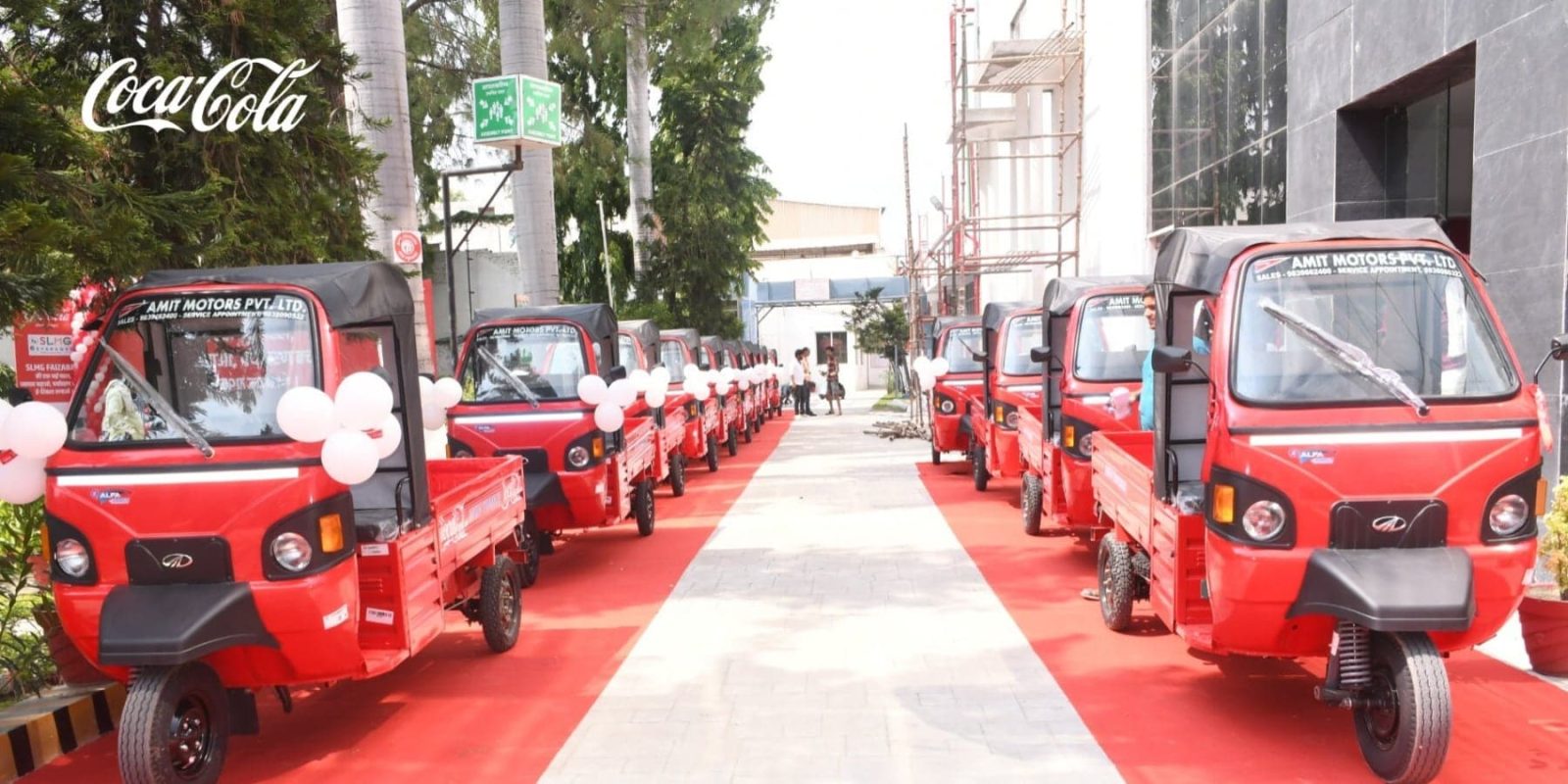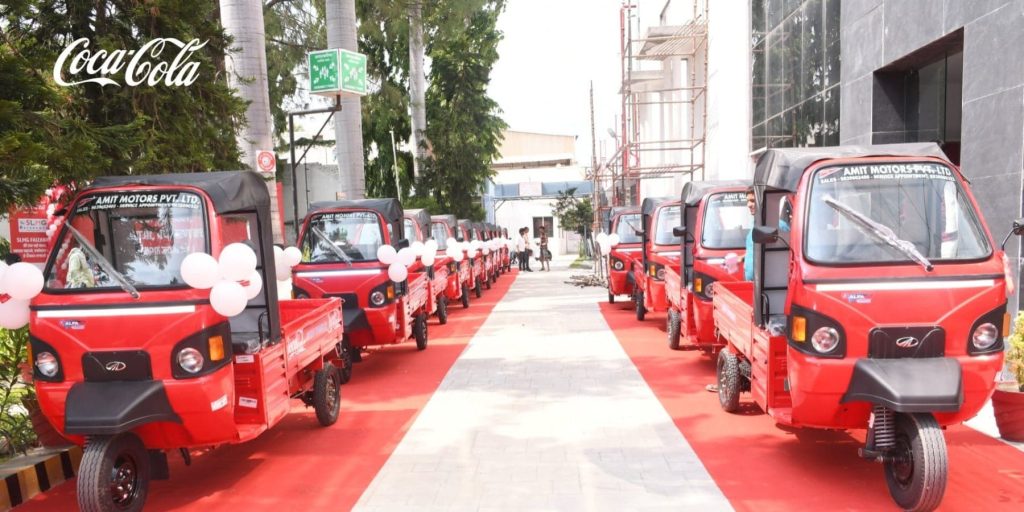
Coca-Cola’s bottling partners in India are going electric, three wheels at a time. The company just announced a major expansion of its electric delivery fleet, adding thousands of electric three-wheeled vehicles (often called e-rickshaws or electric tuk-tuks) to its logistics operations across the country.
These compact electric vehicles are already a common sight on India’s roads, used for everything from passenger transport to last-mile cargo deliveries. Now Coca-Cola’s bottlers are ramping up their use of these efficient EVs as part of a broader sustainability and welfare initiative dubbed “Vividhta ka Uphaar,” which translates to “a gift of diversity.”
According to the company, the rollout is already underway, with more than 5,000 electric three-wheelers integrated into delivery routes in cities such as Ahmedabad, Bhubaneswar, Bhopal, and more. The vehicles not only reduce tailpipe emissions but also lower noise pollution and operating costs, making them a win for both the company and the communities they serve.

Coca-Cola joins a growing list of multinational corporations turning to electric tuk-tuks to clean up their delivery fleets in Asia. IKEA has deployed similar electric three-wheelers in India and other Southeast Asian countries as part of its push to achieve zero-emissions deliveries. Amazon and Flipkart have also experimented with three-wheeled EVs to reach urban customers on tight, traffic-clogged streets.
While North America often focuses on four-wheeled electric trucks and vans for commercial use, much of the developing world relies on these nimble three-wheeled workhorses. Affordable, maneuverable, and easy to charge, electric rickshaws are a natural fit for dense cities with hot climates – especially where small businesses and large corporations alike need efficient last-mile solutions.
Electrek’s Take
These types of EVs can’t come soon enough. They use electric drivetrains that are closer in size to an electric bicycle than an electric delivery truck or van (usually 2-4kW motors and 3-5 kWh batteries), yet can carry loads closer in size to those same trucks and vans.
Sure, they can’t carry quite the same tonnage, but they’re often more appropriately sized for the kind of last-mile delivery that so many companies require.
I actually bought an electric tuk-tuk back in 2023 and found it to be the perfect ‘city truck’ for my lifestyle, where I live car-free in a city and my wife and I travel by e-bike and e-motorcycle. For the few times we need to actually haul stuff, an electric tuk-tuk or rickshaw gives truck-like capacity in a smaller and more efficient vehicle. What’s not to like?!
Images via: Coca-Cola


FTC: We use income earning auto affiliate links. More.



